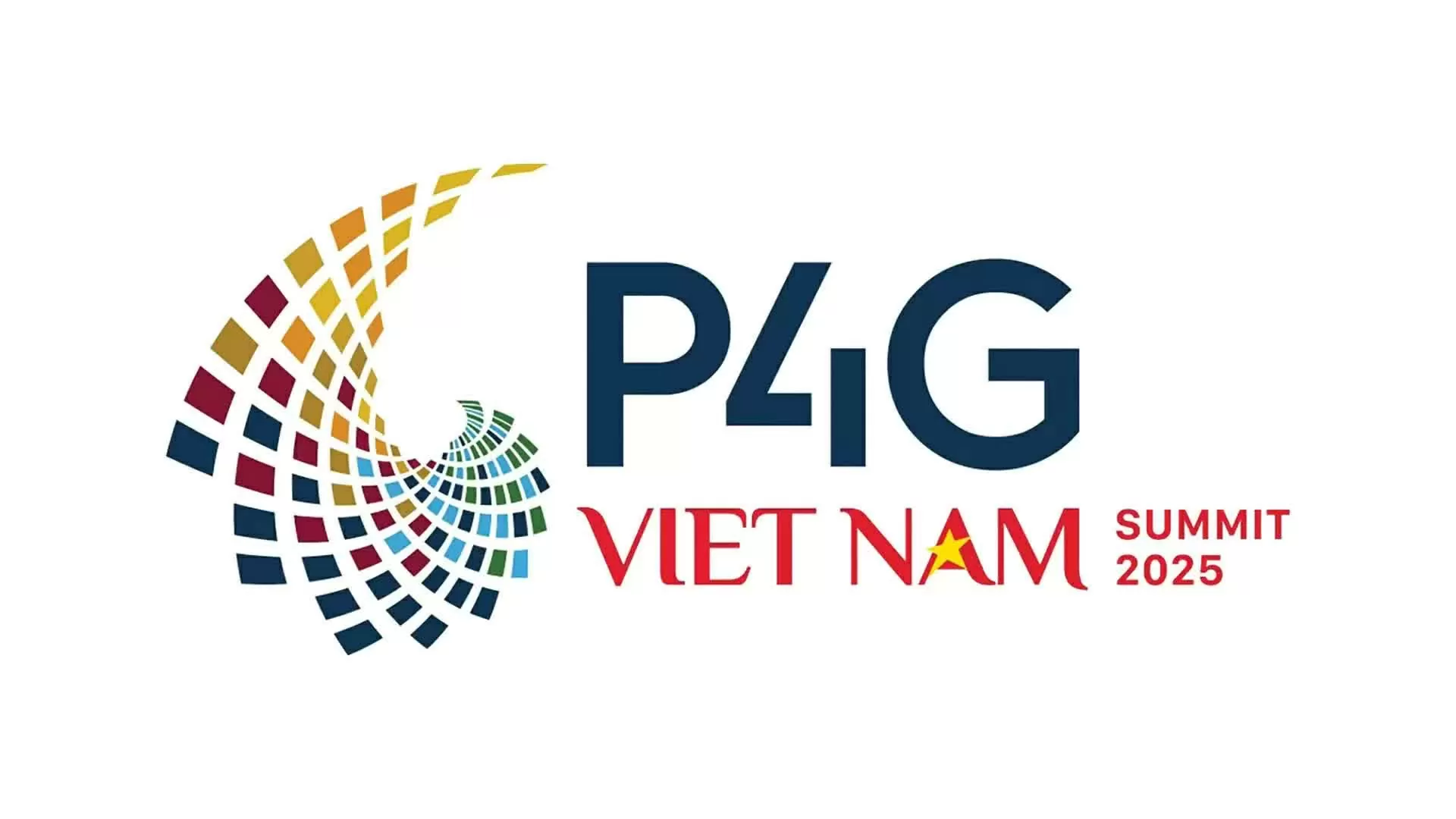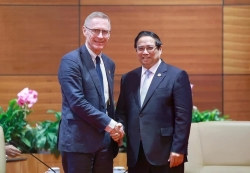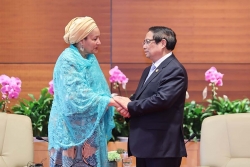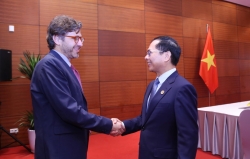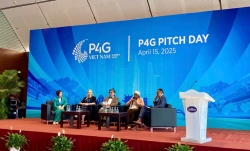
IFAD Associate Vice-President: Empowering farmers is the key to unlocking sustainable agriculture
Latest
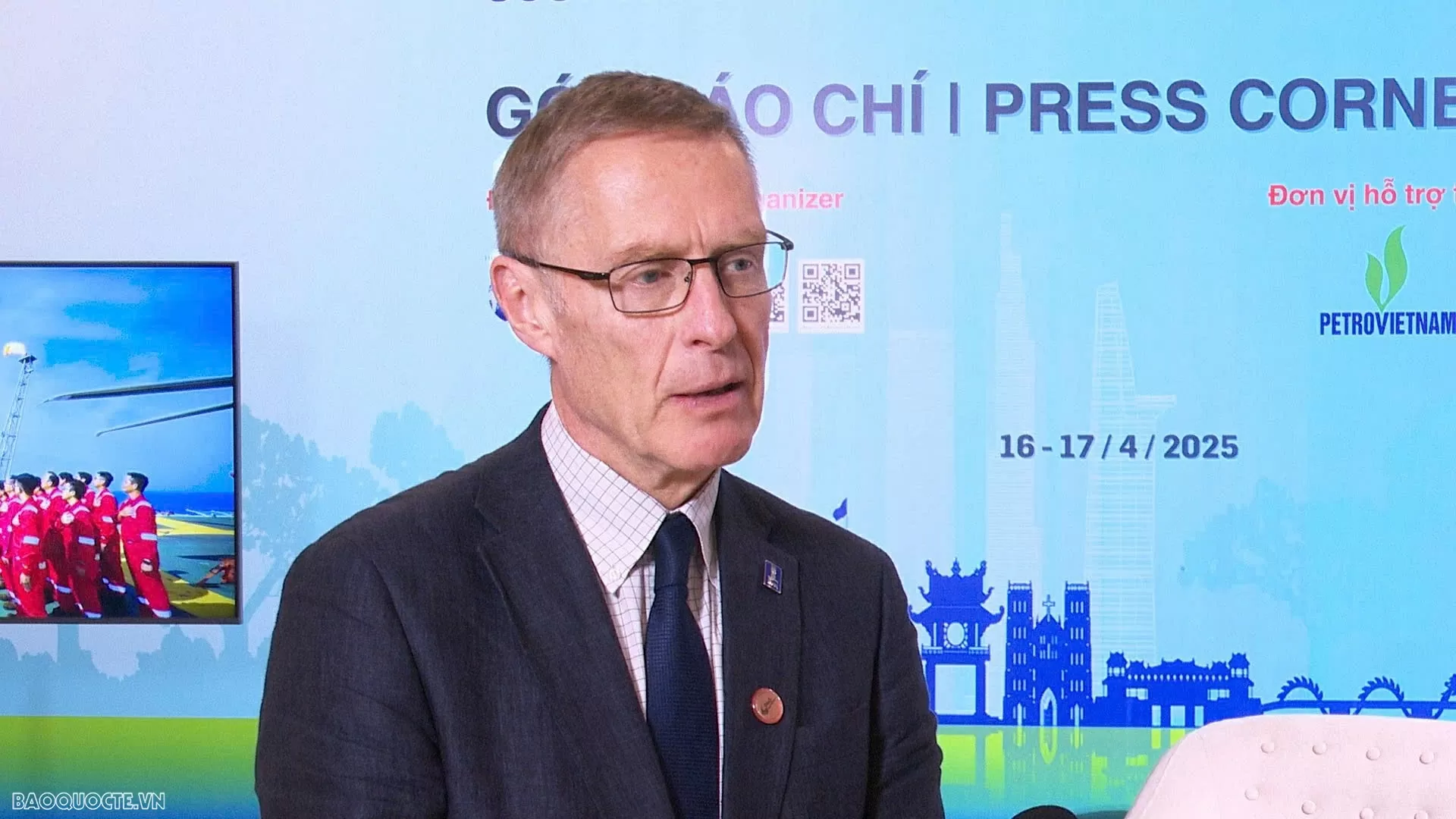 |
| Mr. Donal Brown, Associate Vice-President of the International Fund for Agricultural Development (IFAD), shared that the organization’s core focus is always been on empowering rural communities, particularly women, youth, and ethnic minorities. (Photo: Thanh Long) |
In the context of global efforts to promote green transition and build sustainable food systems, how do you assess the role and significance of the 2025 P4G Summit for IFAD, and what are the organization’s expectations in participating in this important event?
IFAD’s participation in the 2025 P4G Summit underscores our global commitment to building resilient and inclusive food systems. Vietnam, as a regional leader in rural transformation and agricultural innovation, offers a powerful model of success.
The Summit presents a vital platform to highlight Vietnam’s achievements, exchange knowledge, and engage with governments, private sector partners, and civil society to co-create sustainable solutions.
It is also an opportunity to draw global attention to the needs and the potential of rural communities, not only in Vietnam but across developing countries in global South.
About IFAD, One initiative I’m particularly excited about is the Commercial Smallholder Support Project (CSSP) in the Northern Uplands of Vietnam. It is empowering local cooperatives to adopt more innovative, market-oriented practices. The project is helping farmers not only increase productivity but also build stronger connections to buyers, enhancing both income and resilience.
| More from WVR |
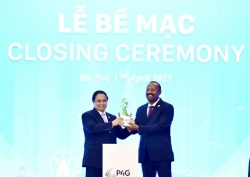 4th P4G Summit: Prime Minister’s closing speech praises vision for global green transition 4th P4G Summit: Prime Minister’s closing speech praises vision for global green transition |
Another key initiative is the Adaptation to Climate Change in the Mekong Delta Project, which introduced a pioneering model that integrates aquaculture with rice cultivation. This modern approach has increased food production and raised household incomes by up to 30%, significantly enhancing food security in one of Vietnam’s most climate-vulnerable regions.
We are also developing new initiatives in the central coastal and central highlands areas, focused on strengthening value chains and building climate resilience in communities facing growing environmental risks.
Most notably, we are about to launch RECAF – Achieving Emission Reductions in Vietnam, in partnership with the Government of Vietnam. This transformative project will directly benefit around 100,000 smallholder households, with a strong focus on empowering ethnic minorities, women, and youth. RECAF addresses both the urgent climate challenges and economic opportunities for marginalized populations. It will boost agricultural productivity, improve food security, strengthen rural livelihoods, and contribute to forest conservation.
Scheduled for official launch in June 2025, RECAF marks a important step forward in resilient rural development. It is fully aligned with the United Nations Sustainable Development Goals (SDGs), contributing to:
SDG 1 (No Poverty) by raising household incomes;
SDG 2 (Zero Hunger) through sustainable agricultural practices; and
SDG 13 (Climate Action) by promoting climate-resilient and environmentally friendly farming.
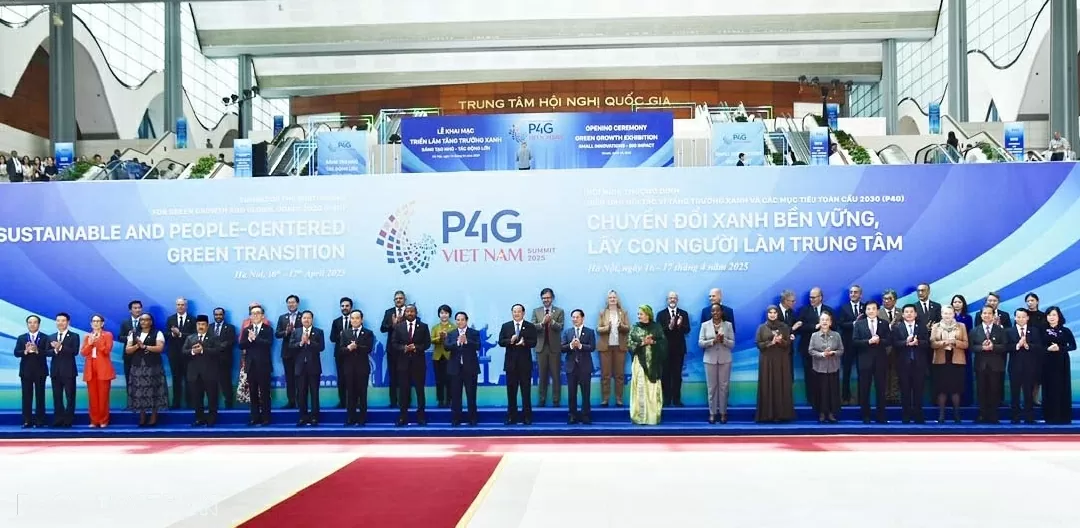 |
| On the afternoon of April 16 in Hanoi, the P4G Vietnam 2025 Summit officially kicked off under the theme “Sustainable Green Transition: Putting People at the Center.” (Photo: Quang Hoa) |
How does IFAD view the role of public-private partnerships (PPP) in the process of transforming food systems, particularly in developing countries like Vietnam? In addition, how has the organization supported rural communities in Vietnam to ensure that farmers are better prepared for the future — equipped with technology, market access, and greater resilience?
In my view, public-private partnerships are crucial to the transformation of food systems. While governments provide policy and institutional support, the private sector brings innovation, investment, and scale.
In Vietnam, we are witnessing promising examples where such partnerships are helping smallholder farmers access finance, adopt new technologies, and integrate into value chains. These partnerships are creating inclusive, efficient, and sustainable food systems - from farm to fork - while addressing critical issues like climate resilience, productivity, and market access.
Moreover, IFAD has a long-standing partnership with Vietnam, and our focus has always been on empowering rural communities, particularly women, youth, and ethnic minorities.
We’ve facilitated market access through cooperatives, supported financial inclusion, and introduced digital tools that give farmers access to real-time weather data, pricing information, and farming advice. These tools help them make informed decisions, reduce risk, and increase profitability.
Our training programs, often delivered at the provincial and local levels, are tailored to promote both modern agricultural techniques and sustainable environmental practices. By equipping communities with the right tools, knowledge, and technologies, we are helping them become more resilient to climate and market shocks—and more confident in building a better future.
What is your perspective on the concept of “innovation” in agriculture, what makes an initiative truly capable of creating sustainable impact for farmers? Besides, based on practical experience, could you share a specific success story to inspire Vietnamese farmers to confidently apply innovation in their production?
Agricultural innovation is about introducing new ideas, tools, or methods that make farming more efficient, sustainable, and profitable. This can include everything from digital solutions and climate-resilient seeds to improved irrigationand post-harvest processing.
For example, precision agriculture, which uses satellite data or mobile apps to guide irrigation and fertilizer use, is helping farmers boost yields while saving resources. Mobile platforms are also helping smallholders access marketsdirectly and sell their products at better prices.
Just yesterday, I visited farmers in Bac Kan Province under the CSSP project. There, I saw firsthand how innovation is being embraced. With IFAD’s support, farmers are adopting practical, affordable innovations that are improving yields, strengthening market linkages, and building climate resilience. These are real-world examples of how innovation is transforming lives in rural areas of Vietnam.
Vietnam hosts the fourth P4G Summit in 2025, taking place from April 14 to 17, 2025. This multilateral cooperation mechanism was initiated by Denmark in 2017 and includes eight other partner countries: Vietnam, Republic of Korea, Ethiopia, Kenya, Colombia, the Netherlands, Indonesia, and South Africa, along with five organizational partners—World Resources Institute (WRI), Global Green Growth Institute (GGGI), C40 Cities, World Economic Forum (WEF), and the International Finance Corporation (IFC). P4G has held three previous summits hosted by Denmark, Republich of Korea, and Colombia, respectively, with the goal of fostering public-private partnerships and building a coalition of political leaders committed to implementing the Paris Agreement on climate change and the UN Sustainable Development Goals (SDGs) for 2030. This year’s summit is seen as an opportunity for Vietnam in general—and Hanoi in particular—to promote green tourism, strengthen ties with international partners, and mobilize resources for socio-economic development, climate change response, and the country’s sustainable development. |




